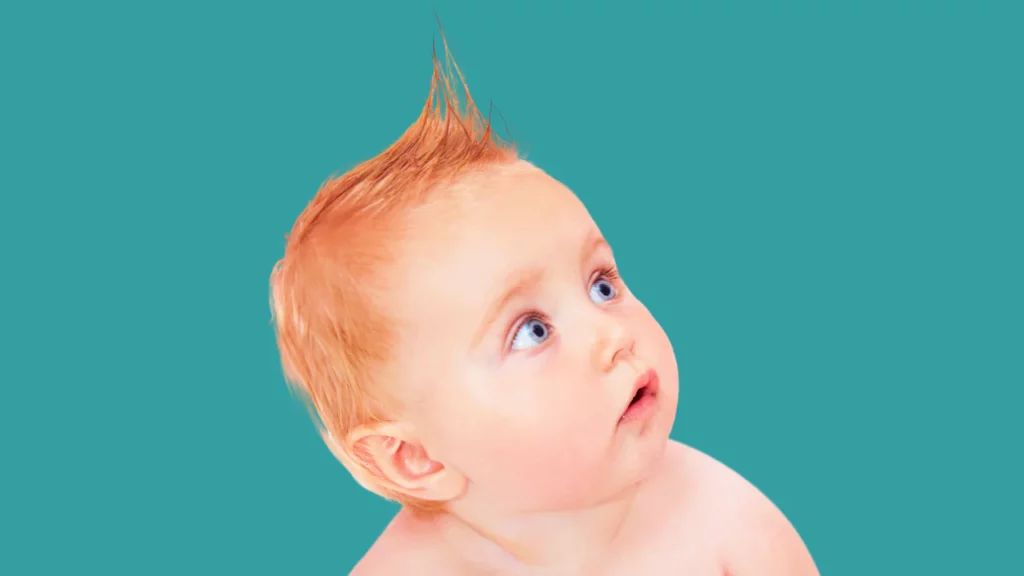Insomnia, a common sleep disorder, affects millions globally. If you’ve ever wondered, “Is insomnia genetic?” or “Can insomnia be passed down?” you’re not alone.
This condition makes it difficult to fall asleep, stay asleep, or causes one to wake up too early, feeling tired during the day. The impact of insomnia can be severe on health, mood, work, and overall quality of life.
In the this article, we will explore these aspects, including the question, “Is insomnia hereditary?” and “What is the genetics of sleep?”
Quick Note:
Insomnia, a common sleep problem, might make you wonder, “Is it genetic?” The answer is yes, to an extent. Insomnia’s causes are multifaceted, involving both genetic and environmental factors.
Acute and chronic insomnia are the two main types. Acute insomnia is short-term and often linked to stress, whereas chronic insomnia lasts longer and can have various causes, including genetic factors.
Genetic studies have identified specific genes, like MEIS1 and PER3, associated with insomnia, suggesting that it can indeed have a hereditary component. However, environmental factors like lifestyle, stress, diet, and medical conditions significantly influence the development and severity of insomnia.
Understanding the complex interaction between genetics and the environment is key to addressing and managing this condition effectively.
For a detailed exploration of the hereditary nature of insomnia, and its various causes and treatments, continue reading this article.
Types of Insomnia
Insomnia can be divided into two main categories: acute and chronic insomnia.
- Acute Insomnia: Short-term, often linked to stress or trauma, lasting a few days or weeks. People may ask, “Is insomnia hereditary?” when experiencing this, but it typically resolves itself.
- Chronic Insomnia: A long-term condition lasting more than three months. The causes may include:
- Genetic Factors: Some may possess an insomnia gene, making them more vulnerable to this sleep disorder. The genetics of sleep can be an intriguing aspect of chronic insomnia.
- Psychological, Medical, Medication, Lifestyle, and Environmental Factors: Chronic insomnia can be influenced by mental health, physical conditions, medication, lifestyle habits, or even environmental disturbances. These can interact with hereditary insomnia traits if present.
Chronic insomnia can further be classified into primary (without a clear cause) and secondary (associated with another condition). Subtypes include sleep onset insomnia, sleep maintenance insomnia, and mixed insomnia.
Genetic Factors in Insomnia
What is genetics
Genetics, the study of inherited traits from parents, can influence everything from hair colors to personality. But what about genetic insomnia? Could there be an insomnia gene?
Our genes, the segments of DNA coding for specific proteins, play a vital role in shaping who we are. These genes come in different forms or alleles, affecting how certain traits manifest.
Is Insomnia Genetic?
Yes, insomnia can have a genetic basis. Studies show that genetics contribute significantly to the likelihood of experiencing insomnia, with heritability estimates around 38%. This genetic influence is not surprising, considering genes play a crucial role in various sleep-related aspects, including the quantity of sleep one needs and one’s chronotype, which affects sleep patterns. Thus, if you struggle with insomnia, it’s possible that genetic factors are partly to blame, alongside environmental and lifestyle factors.
Some might wonder, “Can insomnia be passed down?” and the answer lies in understanding the genetic sleep disorders and the difference between dominant, recessive, and co-dominant alleles.
Sleep, a complex polygenic trait, involves many genes and environmental factors.
It’s regulated by the circadian rhythm, our biological clock, and the homeostatic drive, our body’s need for sleep. Together, they control the sleep-wake cycle, leading us to ponder if genetic insomnia is a factor.
The question “is insomnia genetic?” has been explored in this section, focusing on the hereditary nature of insomnia, the specific insomnia genes, and how other factors might trigger these genes.
Studies Showing a Genetic Link
Several research papers reveal that insomnia has a genetic side to it. Meaning, “can insomnia be passed down?” is a relevant question, as it can run in families.
A study found 57 loci in human DNA linked to insomnia symptoms.
Another research highlighted that insomnia is moderately heritable, with an estimated heritability of 38%.
These findings point to the genetics of sleep and suggest that some people might be more prone to insomnia due to their genetic makeup.
Specific Genes Associated with Insomnia
Identifying specific genes that are linked to insomnia, or what we might refer to as “genetic insomnia,” is complex since sleep involves many biological aspects. But some researchers have found genes related to insomnia.
For instance, MEIS1 is a gene consistently linked to insomnia.
Variants in this gene, a part of genetic sleep disorders, can lead to restless legs syndrome (RLS), further affecting sleep quality and heightening the risk of insomnia.
Another insomnia gene is PER3, which controls our body’s sleep-wake cycle.
Variations in this gene can influence a person’s sensitivity to light and their morning or evening preferences. Other genes implicated in insomnia include HTR2A, GRIA3, and PDE4D.
Genetic Predisposition and Risk Factors
Having these gene variations doesn’t mean one will necessarily suffer from insomnia. It means there might be a higher or lower chance of having insomnia, depending on other influences like stress, caffeine, alcohol, medication, and sleep habits. These can affect how insomnia genes are activated in the body.
For instance, stress can alter sleep by affecting genes related to inflammation and the immune system.
Similarly, light exposure can impact the hormone melatonin, which controls sleep patterns. Understanding how “hereditary insomnia” interacts with these environmental factors can help tailor strategies for prevention or treatment.
In short, the genetics of sleep and genetic sleep disorders can influence insomnia through various biological mechanisms. However, genes are not the sole factor, and environmental factors can shape how these genes function in the body.
Knowing the interplay between genetics and the environment provides insights to tackle insomnia for each individual helping those who wonder if it can be passed down in families.
Non-Genetic Factors in Insomnia
As we discussed, there is a genetic predisposition to insomnia. There may exist “insomnia gene(s)” that plays a role in this condition.
However, aside from the genetics of sleep, there are many non-genetic elements that can cause or make insomnia worse. Let’s look into environmental and lifestyle influences that can affect your sleep, as well as the medical and psychological issues that can lead to or co-exist with insomnia.
Environmental and Lifestyle Factors
Many environmental and lifestyle influences that can affect your sleep, as well as the medical and psychological issues that can lead to or co-exist with insomnia.
The way you live and your surroundings can significantly impact how well you sleep. The non-genetic factors that can mess with your sleep include:
Light
Being around bright lights, especially the blue light from phones and tablets, can mess with a hormone called melatonin that helps you sleep. It can make it tough to fall asleep or stay asleep.
Getting natural light during the day, on the other hand, helps keep your body’s natural sleep-wake cycle in balance and encourages better sleep.
Noise
Loud or sudden sounds, like car horns or alarms, can wake you up and stress you out. This noise increases your alertness and stress, which might affect your sleep quality.
If you’re struggling with sleep, you might be wondering about genetic insomnia, but sometimes it’s the noisy environment that’s the issue.
Temperature
Your body gets cooler at night. If your room is too hot or too cold, it can mess with this natural process and leave you tossing and turning. Comfortable temperature is one of the key to good sleep.
Bedding
Your bed and blankets matter too. If they’re not comfortable, it might cause aches or make you too hot. Sometimes a simple change in bedding can make a big difference in how you sleep.
Caffeine
Coffee and other caffeinated drinks can keep you awake.
It can reduce the amount of deep sleep you get, making you wonder if your insomnia is hereditary or if there’s an insomnia gene involved.
Caffeine can hang around in your body for up to six hours or longer in slow caffein metabolizers, so try to avoid it later in the day if sleep is a problem.
Alcohol
Though alcohol might make you feel sleepy, it can mess with the quality of your sleep, causing you to wake up often and snore more.
Alcohol can also mess with your body’s temperature and hydration, leading to uncomfortable sleep.
Nicotine
Similar to caffeine, nicotine is another thing that can keep you awake. It can mess with the deep sleep you need, cause you to wake up often, and even lead to more snoring.
Nicotine addiction might also lead to withdrawal cravings during the night, causing discomfort that interrupts your sleep.
Quitting smoking or reducing nicotine intake can have a positive effect on sleep quality.
Exercise
Getting moving helps your overall well-being and improves your sleep quality. It can lower stress, lift your mood, balance your body temperature, and encourage a deeper slumber.
However, doing hard exercises too close to when you hit the sack can mess with your sleep, making it difficult to drift off or rest soundly.
Try not to do heavy exercise within three hours of bed, and choose calming activities like yoga instead.
Eating Habits
What you munch on and when can affect your sleep. Eating too much or too late might lead to discomfort, hunger, or acid reflux, disrupting your sleep.
Foods that are spicy or rich can mess with your blood sugar and hormones, impacting sleep quality.
Try to avoid big meals within three hours of bedtime and choose snacks like milk or nuts that help you sleep.
Sleep Schedule
Sticking to a consistent sleep schedule helps you maintain a normal sleep rhythm, and promotes better sleep quality.
Going to bed and waking up at the same times daily helps you create a steady sleep routine and prevents disruptions like jet lag.
Avoid napping, particularly in the afternoon or evening, as it can mess with your ability to fall asleep at night. Understanding the genetics of sleep and sleep genetics can also contribute to maintaining a healthy sleep routine.
Psychological Factors
Psychological factors are common causes of insomnia, leading some to wonder, “is insomnia hereditary?” or inquire about the “insomnia gene.” Let’s look at how these mental factors can affect sleep:
Stress
Stress is a normal reaction to tough situations, but too much can harm your health and sleep. It can make you more alert and less able to wind down.
Worrying about problems or future events can keep your mind busy, preventing you from sleeping.
Anxiety
Feeling nervous or fearful about something that might happen is normal. However, anxiety can be overwhelming in some cases, like with an anxiety disorder.
Constant worry that affects your daily life can be a problem and can interfere with your sleep. While it’s essential to acknowledge the possibility of genetic sleep disorders, managing anxiety is equally important.
Diagnosis of Insomnia
When diagnosing insomnia, medical professionals typically inquire about sleep habits, health background, and lifestyle.
You might need to fill out a form or maintain a sleep journal for a few weeks to document your sleeping patterns, nighttime routines, and daily symptoms.
This helps determine the kind, seriousness, and underlying causes of your insomnia, including hereditary insomnia.
Additional tests might be necessary to exclude other sleep issues or health conditions that may disturb your sleep, such as:
- Polysomnography: This overnight study records your brain activity, eye movements, and breathing during sleep. It helps identify other issues like sleep apnea that might cause or exacerbate insomnia.
- Actigraphy: By wearing a device on your wrist or ankle for several days or weeks, it monitors your movements and light exposure to judge your sleep-wake cycles. This assists in understanding your circadian rhythm, the natural 24-hour body clock controlling sleep and alertness.
- Multiple sleep latency test: This daytime examination measures your ability to fall asleep in a calm setting at varied times of the day. It’s helpful in evaluating your level of daytime sleepiness and your capacity to stay awake when required.
If you are facing sleep problems for a long time, it might be a good idea to seek professional help.
Genetic Testing
Recent research have pointed towards a connection between genetic sleep disorders and insomnia.
Certain studies have located genes linked with insomnia symptoms or predispositions. Some of these insomnia genes may impact specific brain chemicals regulating sleep, while others might affect your stress response, which can initiate or sustain insomnia.
Genetic testing for insomnia, though not widespread or advised in clinical care, may provide advantages down the line.
For example, it could help recognize those more susceptible to insomnia or more likely to respond positively to particular treatments.
This intersection between sleep genetics and treatment may enable personalized medicine for insomnia, adjusting the dosage, variety, and timing of medications according to individual genetic sleep disorders and more.
Tips for Better Sleep
Sleep is crucial for our overall well-being. However, many people face challenges in getting enough quality rest every night.
Understanding the genetics of sleep, or sleep genetics, might be part of the answer. Here are some tips and insights, including aspects of genetic insomnia or hereditary insomnia, that can guide you to improve your sleep.
Sleep hygiene and habits
Sleep hygiene involves practices that promote good sleep. These might be particularly useful if you suffer from genetic sleep disorders:
- Maintain a Consistent Sleep Schedule: Try to go to bed and wake up at the same time daily, even on weekends and holidays. Consistency helps your body’s internal clock, which might be influenced by genetics of sleep, regulate your sleep cycle, making it simpler to fall asleep and wake up.
- Craft a Relaxing Bedtime Routine: Do calming activities like reading or listening to music before bed. Managing stress helps address both genetic and non-genetic insomnia. Avoid stimulating or stress-inducing activities like watching TV or checking your phone, as they might exacerbate hereditary insomnia.
- Ensure Your Bedroom is Sleep-Friendly: Create a cool, dark, and quiet environment, with curtains or an eye mask to block light and earplugs or a fan to reduce noise. Your mattress, pillow, sheets, and blankets should suit your preferences.
- Avoid Sleep-Disrupting Substances: Stay away from caffeine, alcohol, nicotine, and others that might interrupt your sleep. These substances can keep you awake or hinder your sleep quality.
- Limit Daytime Naps: Naps can be helpful, but if you’re wrestling with genetic insomnia, they might disrupt your sleep cycle and make falling asleep at night more difficult. Consider limiting naps to 20 minutes or less and avoiding them after 3 p.m.
Relaxation Techniques
Relaxation techniques are handy tools that may help you deal with stress, anxious feelings, and physical tightness.
These practices can lead to a sense of calmness and improve well-being. If you’re concerned about issues like genetic insomnia and hereditary insomnia, these methods might aid in improving your sleep:
- Deep Breathing: This is about taking slow, full breaths from your belly and breathing out through your mouth. By focusing on your breath or repeating calming words, you can slow down your heart and lower your blood pressure. It’s a way to relax your body and clear your mind.
- Progressive Muscle Relaxation (PMR): This method lets you tense and relax different parts of your body, one by one. Starting from your feet and moving to your head (or the other way around), PMR helps you let go of physical tension.
- Visualization: This is about picturing a calming place in your mind, like a beach or forest. By using your senses to make the scene feel real, visualization can help you shift focus from negative thoughts and boost your mood.
- Meditation: This method focuses your thoughts on one thing, like your breath or a sound. Mindfulness meditation lets you concentrate on the present moment without harsh judgments. Meditation may quiet your mind, lessen stress, and increase melatonin, which controls sleep.
Diet and Exercise Considerations
Your daily meals and physical activities can directly affect how well you sleep at night. Some things to think about in terms of diet and exercise to better understand sleep genetics, genetic insomnia, and hereditary insomnia are:
- Eat Healthy: Eating a balanced diet gives your body essential nutrients to support overall health. This healthy eating can also stop problems that might mess with your sleep, like obesity, diabetes, or heart issues.
- Avoid Big or Spicy Meals Before Bed: Eating a lot or spicy foods near bedtime might cause heartburn or other discomforts, making it tough to fall asleep. Try to finish eating three hours before bed. A light snack is fine if you’re hungry.
- Drink Water, But Not Right Before Bed: Drinking water all day is great for you, but if you drink a lot right before bed, you might need to wake up at night. Try not to drink too much an hour or two before bedtime.
- Exercise, But Not Too Late: Exercise is wonderful for your body and mind. It can even help with issues like genetic insomnia. But exercising too close to bedtime might keep you awake. Try to get 150 minutes of moderate exercise a week and avoid exercising within three hours of bedtime.
Related Sleep Disorders
If you’ve tried various tips and still find it hard to sleep, you might have a sleep disorder needing expert care and therapy. Some common sleep disorders are:
- Sleep Apnea: This disorder causes you to stop breathing briefly during sleep, leading to loud snoring or choking sounds. It might wake you up often and leave you feeling tired during the day. It’s not directly linked to genetic insomnia but can increase the risks of other serious health problems. Continuous positive airway pressure (CPAP) therapy is a treatment that uses a mask to keep your airways open and prevent pauses in breathing.
- Narcolepsy: This disorder can make you feel extremely sleepy during the day and may cause sudden sleep attacks. It’s a separate issue that may also include cataplexy, a sudden loss of muscle control. Treatment may involve medicines to stimulate the nervous system or control the sleep-wake cycle, and lifestyle changes like short naps and avoiding caffeine.
- Restless Legs Syndrome (RLS): This condition makes your legs feel uncomfortable, mainly at night. It’s not tied to the insomnia gene but can make it tough to sleep. The sensation might feel like tingling or itching, and moving your legs can ease it. Medicines affecting dopamine or iron in your brain can treat RLS, along with other changes like massages or avoiding caffeine.
If you’re struggling with sleep it’s a good idea to speak to a doctor or sleep expert. They can look at sleep genetics or other underlying causes and suggest the best treatments.
Getting professional help can boost your overall health and happiness, whether you’re dealing with genetic insomnia or other sleep-related issues. They can help you understand the problem and find solutions tailored to your needs.
Ongoing Research and Future Perspectives
Since the roots of insomnia are not completely clear and existing treatments don’t always work, we need more exploration in this area.
Current Research
- Is Insomnia Genetic? Understanding the Genetics of Sleep: Researchers are trying to understand if insomnia can be passed down through genes. Studies have discovered an “insomnia gene” connection, finding genes like MEIS1, PER3, and CLOCK that may relate to the risk of insomnia. These genes help control the body’s daily sleep and wake patterns. However, the genetic sleep disorders associated with insomnia are complicated and can be affected by outside elements such as stress and lifestyle. Genetic insomnia may also vary, with different genetic profiles for insomnia with or without daytime sleepiness.
- Brain Studies and Insomnia: Scientists are using technology like EEG, fMRI, and PET to study how the brain behaves during sleep in people with insomnia. They’ve found that insomnia might change the way the brain works, affecting things like blood flow and chemical levels that control sleep and wakefulness. This includes the discovery that people with insomnia might have different sleep patterns, such as less deep sleep, and chemicals that affect relaxation.
Future Implications
The information from genetic and brain studies might change how we diagnose and treat insomnia. For example:
- Can Insomnia be Passed Down? Genetic testing might identify who could develop insomnia or who might react better to certain treatments.
- Genetic Insomnia Treatments: New drugs that target specific genes involved in insomnia might be developed to improve sleep quality.
- Brain Changes and Insomnia: Techniques that change brain activity could be used to help people with insomnia.
Final Thoughts on Genetics of Insomnia
The genetics of insomnia is a complex and multifaceted field that offers intriguing insights into the nature of sleep disorders.
Recent advancements in technologies like Next-Generation Sequencing (NGS) have allowed us to delve deeper into the genetic factors that might contribute to insomnia, unveiling specific genes and pathways that could be implicated.
While we have made significant strides in understanding the genetic underpinnings of insomnia, there remains a complex interplay between genetic, environmental, and lifestyle factors that must be further explored.
Individualized treatments tailored to a person’s unique genetic makeup could be on the horizon, but additional research is essential to fully realize this potential.
With continuing research, we can hope to unravel the mysteries of insomnia and improve the lives of millions who suffer from this challenging disorder.
FAQs
Is insomnia inherited from the mother?
Insomnia can have a genetic component, but it’s not necessarily inherited directly from the mother. There can be a predisposition to insomnia within a family, but other factors such as lifestyle, stress, and environment play significant roles as well. It’s a complex trait influenced by multiple genes and non-genetic factors.
Is insomnia inherited from the father?
Just like with inheritance from the mother, insomnia may have some genetic factors that could be passed down from the father. However, it’s not as simple as inheriting the condition directly. A combination of genes from both parents, along with lifestyle and environmental factors, can contribute to insomnia.
Is genetic insomnia curable?
Genetic insomnia, or insomnia with a strong genetic component, is typically not curable in the sense that it can be completely eliminated. However, it can often be managed with proper treatment and lifestyle changes. Treatment may include cognitive-behavioral therapy for insomnia (CBT-I), medication, and good sleep hygiene practices.
How is insomnia passed on?
Insomnia is not directly passed on like a single-gene disorder. It’s a multifactorial condition, meaning that it’s influenced by several genes and their interactions with environmental and lifestyle factors. Family history of insomnia can increase the risk, but it doesn’t guarantee that an individual will experience the condition.
What age does insomnia start?
Insomnia can start at any age, and its onset may be influenced by a combination of genetic, environmental, and lifestyle factors. While some individuals might experience insomnia during childhood, others may not encounter it until later in life. Factors such as stress, anxiety, medical conditions, and poor sleep habits can contribute to the development of insomnia at various stages of life.
References:
- Insomnia – Symptoms and causes – Mayo Clinic
- Insomnia: Symptoms, Causes, and Treatments | Sleep Foundation
- Insomnia – Wikipedia
- Frontiers | The Epidemiology of Insomnia and Sleep Duration Across …
- Insomnia Overview: Epidemiology, Pathophysiology, Diagnosis and … – AJMC
- Prevalence of insomnia for Canadians aged 6 to 79 – Statistics Canada
- Types of Insomnia | Sleep Foundation
- Diagnosis and treatment – Mayo Clinic
- Treatments for Insomnia | Sleep Foundation
- On World Sleep Day, New Research Reveals the Socioeconomic … – RAND
- Insomnia Research News — ScienceDaily
- Rising Stars in Insomnia 2023 | Frontiers Research Topic

Dr. Sumeet is a seasoned geneticist turned wellness educator and successful financial blogger. GenesWellness.com, leverages his rich academic background and passion for sharing knowledge online to demystify the role of genetics in wellness. His work is globally published and he is quoted on top health platforms like Medical News Today, Healthline, MDLinx, Verywell Mind, NCOA, and more. Using his unique mix of genetics expertise and digital fluency, Dr. Sumeet inspires readers toward healthier, more informed lifestyles.





